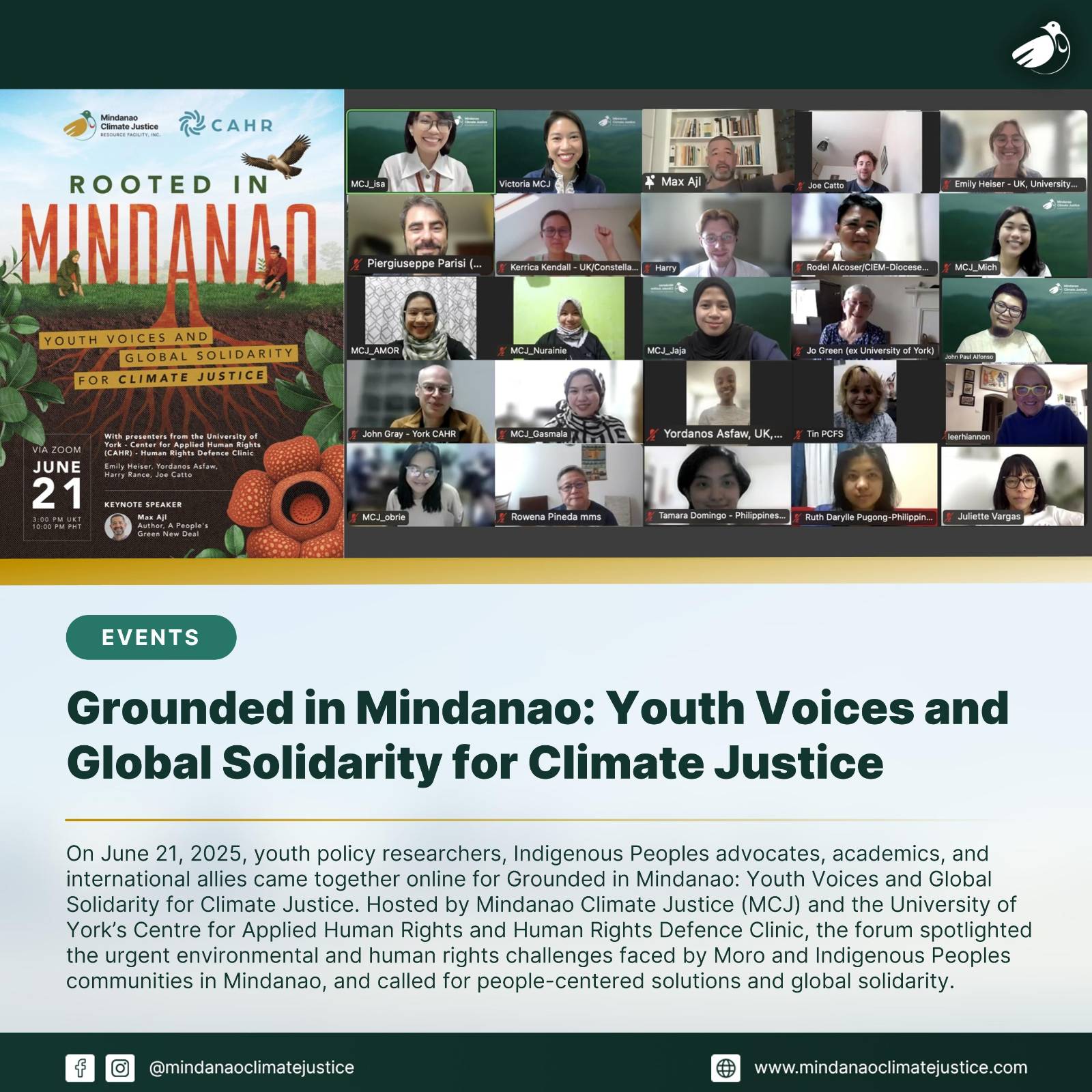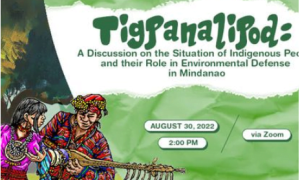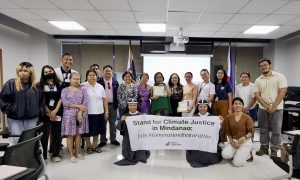“Sadly, climate change is no longer a risk in Mindanao. It’s a rapidly emerging crisis, with visible impacts across the island.”
This urgent reminder set the tone for Grounded in Mindanao: Youth Voices and Global Solidarity for Climate Justice, a World Environment Day 2025 forum held online on June 21, hosted by Mindanao Climate Justice (MCJ) in partnership with the University of York’s Centre for Applied Human Rights and Human Rights Defence Clinic.
The gathering brought together youth policy researchers, Indigenous Peoples advocates, academics, and international allies to spotlight the realities of the climate crisis in Mindanao and the need for justice rooted in equity, Indigenous rights, and grassroots leadership.
Opening Message on Human Rights and Climate Solidarity
Dr. Piergiuseppe Parisi, Lecturer in International Human Rights Law and Co-Convener of York’s LLM program, opened the forum by reaffirming the Centre’s solidarity with frontline human rights defenders. “Amplifying Global South perspectives is essential in the fight for climate and environmental justice,” he emphasized.
Keynote Discussion Centering A Radical Call for Climate and Land Justice
Keynote speaker Max Ajl, author of A People’s Green New Deal, challenged shallow discussions around food sovereignty, calling for structural change:
“People talk about food sovereignty but don’t talk about freeing their lands, breaking up the estates, or redistributing land.”
He argued that meaningful climate justice for countries like the Philippines must include land reform, the strengthening of local systems, and an intentional shift away from exploitative economic models.
Youth Policy Briefs on Indigenous Rights and Environmental Protection
Policy Brief 1 – Climate Justice for Mindanao: Centering Indigenous Rights and Environmental Protection
Yordanos Asfaw and Emily Heiser presented Climate Justice for Mindanao: Centering Indigenous Rights and Environmental Protection, highlighting how displacement and environmental degradation intersect in Indigenous Peoples communities. They noted that while the Indigenous Peoples’ Rights Act (IPRA) appears strong in theory, it is routinely undermined by policies prioritizing business and military interests.
“Human rights and environmental safeguards are treated as secondary rather than fundamental,” they said. Their brief called for stronger state accountability and the full inclusion of Indigenous voices in climate governance.
Policy Brief 2: Empowering Indigenous Stewardship for Climate Resilience in Mindanao
Harry Rance and Joe Catto presented Empowering Indigenous Stewardship to Improve Climate Resilience in Mindanao, examining the impacts of land dispossession and extractive development on Lumad communities.
“Over 178,000 hectares of Lumad ancestral land are under development, mostly for extractive industries,” they shared. This has led to increased flooding, drought, and food insecurity, disproportionately affecting Indigenous peoples. Their research showed that only half of ancestral lands have legal protection, often compromised by poor enforcement and conflicting policies.
They cited data showing 4.4 million Filipinos displaced by natural disasters between 2017 and 2022, with the numbers expected to rise. “Displacing Indigenous peoples not only violates international law but removes the very communities most capable of protecting ecosystems.”
Global Reflections from Panel of Solidarity Reactors
The panel of Solidarity Reactors included:
- Nurainie Rakim, Moro youth from Marawi City and member of Kinaiyahan – Youth for Climate Justice in Mindanao
- Juliette Vargas, researcher from CAPAZ – Instituto Colombo-Alemán para la Paz
- Lee Rhiannon, former Australian senator and long-time solidarity activist
Nurainie Rakim powerfully reflected on the shared struggles of the Moro and Lumad: “We are both Indigenous to Mindanao and both have been marginalized by state abandonment and destructive development.” She stressed that climate justice must be about cultural survival, safety, and the right to shape one’s future: “It is about the right to stay on our land, to practice our culture, and to live without fear.”
Justice from the Ground Up
In her closing remarks, MCJ Executive Director Victoria Nolasco expressed deep appreciation for the youth presenters, solidarity reactors, and partners:
“From youth researchers to Indigenous peoples advocates, every voice echoed a shared truth: climate justice must be built from the ground up—anchored in human rights and community leadership.”
Participants from Mindanao and beyond left the forum informed, inspired, and committed to action. As the climate crisis intensifies, events like this offer a vision of hope grounded in justice, solidarity, and collective courage




